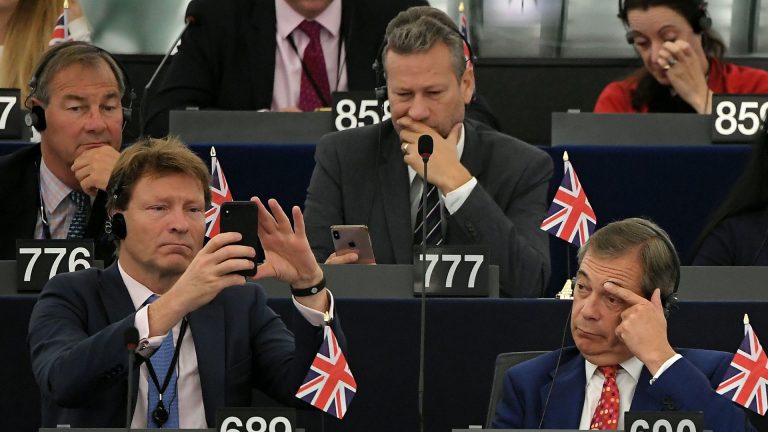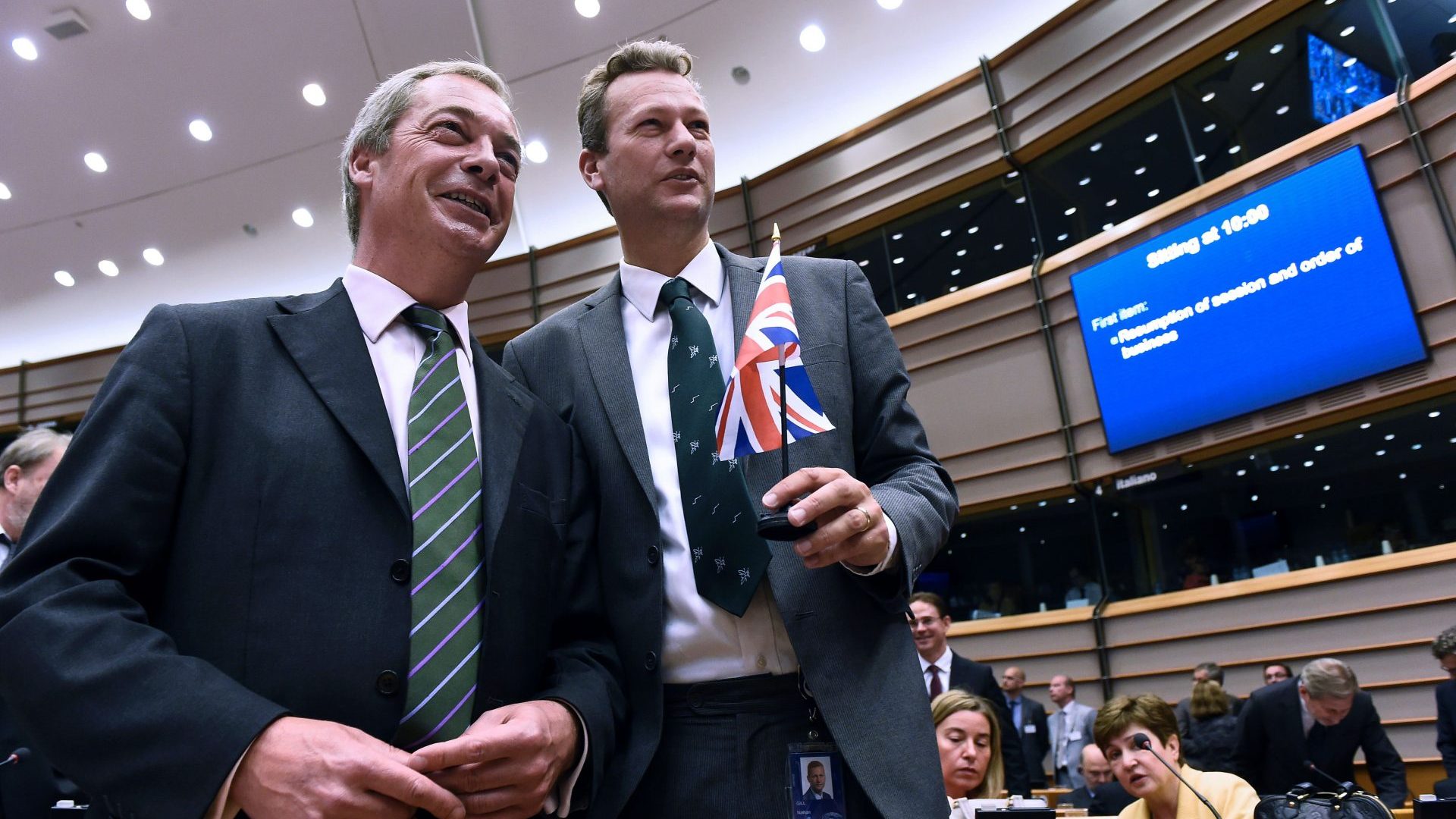Nathan Gill is the former leader of the Reform Party in Wales who was, from 2014 to 2020, a Welsh member of the European Parliament. In that position, he was paid by Russia to make statements favourable to that country, both in the parliament and to anyone else who might listen.
Having pled guilty to eight counts of bribery, Gill is due to be sentenced in the Old Bailey next month. Yet the level of interest in Gill’s story is oddly minimal.
While the Conservatives and the press are working themselves into a lather over the issue of Chinese spying by a couple of lowly parliamentary aides who allegedly shared largely inaccurate Westminster gossip, Gill’s exploits have fallen by the wayside. And yet here we have a blatant example of a malevolent overseas government buying the services of a British politician.
Admittedly Gill was not a star of the Westminster stage. Wales has produced such political luminaries as David Lloyd George, who led the UK during the first world war, and Aneurin Bevan, begetter of the National Health Service, but Gill is nowhere near that league.
Nevertheless, on the current political scene, he did hold some roles that made him noteworthy. He was leader of the UK Independence Party – Ukip – in Wales when Farage was the party leader and subsequently joined the Reform operation, becoming, albeit briefly, its leader in Wales.
Now, just imagine if he had been a Labour politician. Kemi Badenoch would have been shrieking for blood, accusing the government and all its friends of being in the paw of the Russian bear, jeopardising the country for the sake of a miserly few pieces of silver. Farage himself would have been full of righteous indignation. But when the allegations about Gill first came to light, Farage’s allies claimed the Dear Leader hardly knew him.
Gill’s identification with Reform seems to have blunted Badenoch’s urge to attack: maybe she is reluctant to embarrass a potential future partner, even if she continues to rule out any electoral pact, let alone a merger, with Farage’s gang. Meanwhile, Keir Starmer and the rest of the government appear to have decided that there is little mileage in going for Gill and, anyhow, they only have the bandwidth to deal with one spying issue at a time and it has to be the China case.
That the mainstream media should have decided to pay so little attention to Gill and to focus instead on the collapsed prosecution of alleged Chinese spies has been the cause of some comment, not least here in The New World. It is seen as evidence that the predominantly right wing media gives Reform and its acolytes an easy time, which is true. The question that remains, though, is, “Does it matter?”
Suggested Reading


Why is the mainstream media so uninterested in the Nathan Gill scandal?
Increasingly, it seems that the mass of the population limits their interest in current affairs to issues that they feel will affect their lives or provide a welcome respite from the daily grind. The prospect of higher taxes, job losses, or cuts in public services naturally excites strong feelings.
Most British people are, quite rightly, concerned about the economic future of the UK – and their worry is not about the reputation of the country but what it means for them. They are saving money rather than spending it; they are fearful about how they will cope with their old age when the government, like its predecessors, has still to do more than talk about the issue of social care.
They remain distressed about the levels of immigration, their nervousness fuelled by politicians and the media. Some are frightened about benefits being cut and others – far too many – are worried about how they are going to feed their children.
So they will probably not be too bothered to learn that someone they had never heard of had been taking cash from Russia to spread anti-Ukraine propaganda. For years there has been a deep worry in some parts of British public life about the determined infiltration of the British political system by Russia.
Parliament’s Intelligence and Security Committee produced a report in 2019 which concluded that there was substantial evidence that Russian interference in British politics was commonplace. The then government, led by Boris Johnson, initially refused to publish the report.
Scurrilous gossip tried to link this reluctance to Johnson’s friendship with the Lebedev family, which eventually culminated in the younger Lebedev, son of a KGB agent, becoming Lord Lebedev of Richmond and Siberia. It took several months, and heavy criticism from the committee’s chairman, Dominic Grieve, before the report was published but, on the basis of its findings, Gill’s antics were not as dangerous as the attempted manipulation of the Brexit referendum and other UK elections.
Nevertheless, the public was not especially moved by the Russia Report – indeed most people are blissfully unaware of its existence. Depressing though it seems politicians have noted this public indifference, hence the silence over Gill.




